Graduated in environmental science, Mr. Le Minh Vuong (Ninh Hai commune, Khanh Hoa province) devoted all his heart to building a circular agricultural model of garden - pond - cage - earthworm. This direction not only increases the value of agricultural products but also protects the ecological environment, in line with the current trend of green agricultural development.
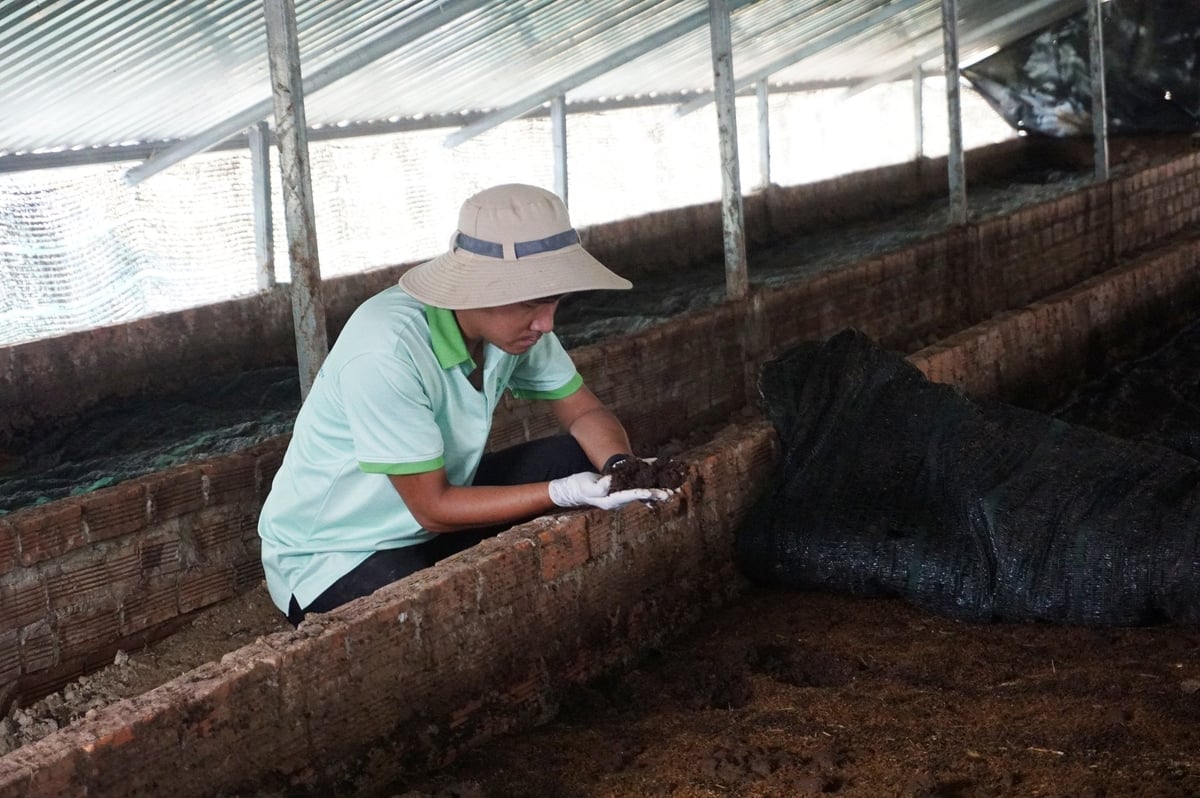
Mr. Le Minh Vuong hopes that more farmers will raise earthworms to create a green agricultural ecosystem and protect the environment. Photo: Nguyen Thuy.
Raising earthworms to revive the soil
“Having witnessed infertile fields, shrimp ponds dying due to overuse of fertilizers and chemicals, farmers exhausted due to weak soil, and declining health, I wondered how to revive the soil,” said Le Minh Vuong.
From that concern, he began to research the topic "Application of vermicompost in circular agriculture" with the desire to turn agricultural waste into resources, bringing agriculture back to its true nature as an ecosystem that needs to be sustainably nurtured.
According to Mr. Vuong, earthworms, though small, can do what machines cannot: regenerate soil, process organic waste, and reduce methane emissions. “Earthworms are the most effective natural composting machine,” Mr. Vuong said, adding that while cow manure composted in the traditional way takes 1-2 months to be used, earthworms only need a few days to turn waste into high-quality organic fertilizer that can be applied directly to plants. Worm manure is rich in nutrients and safe for the soil and the environment.
He shared that raising earthworms is not difficult, just need a shady space, organic waste source such as vegetables or livestock manure. With 100m², you can release about 4 tons of earthworm biomass, after 3-4 months you can collect 8-12 tons of products including earthworm manure, earthworm meat and treated soil.
Vermicompost helps increase porosity, improve the microflora, and reduce emissions by 10-20% compared to using chemical fertilizers. Meanwhile, earthworms are a natural source of biological protein used as feed for chickens and fish, helping to reduce livestock costs. It can be said that earthworms are the starting point of a closed cycle, from waste treatment, organic fertilizer, livestock and cultivation, all returning to serve the soil.
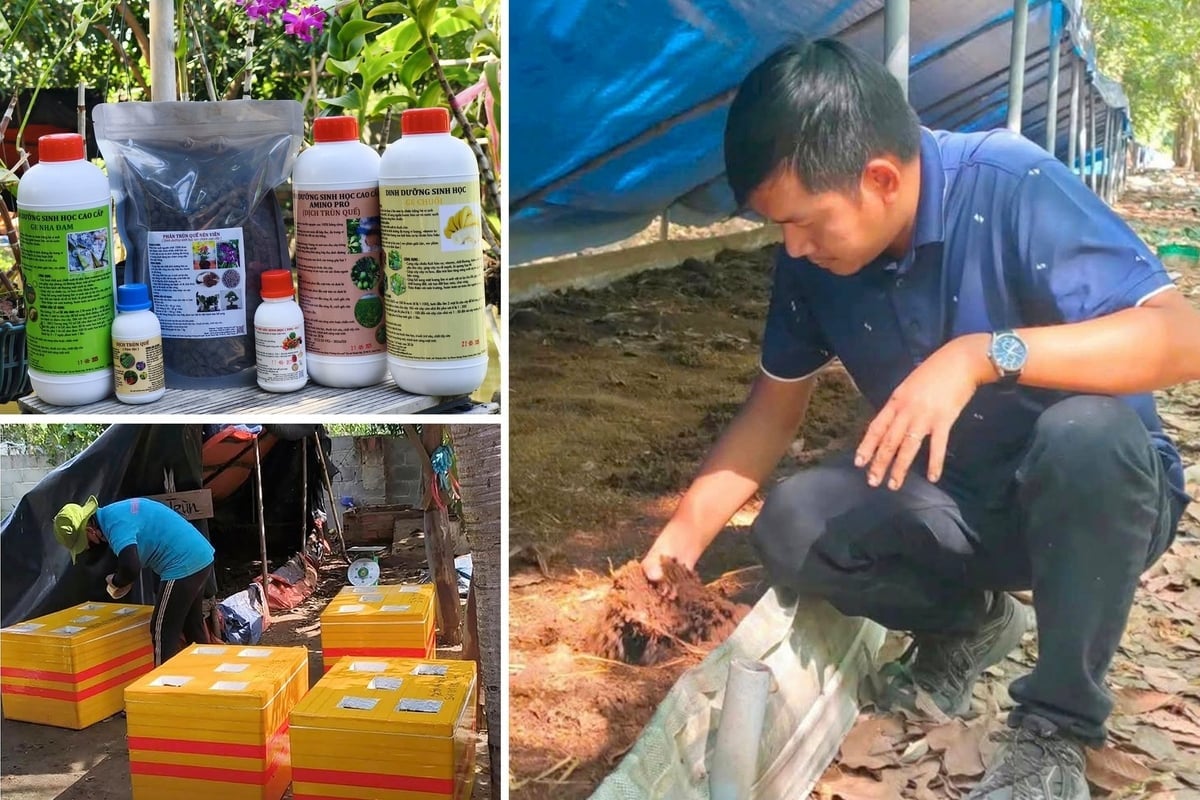
Currently, Mr. Vuong has transferred the techniques of raising earthworms, composting, and using earthworm manure to fertilize plants... to many households in many provinces and cities for application. Photo: Nguyen Thuy.
Creating green ecosystems
Having devoted himself to the research and application of earthworms, Mr. Le Minh Vuong understands that starting a green business is not easy. From a few experimental cages to a large-scale farm, he has experienced many failures and pressures.
What makes him loved is his spirit of sharing knowledge instead of keeping the profession to himself. He regularly organizes training courses for farmers, guides on raising worms, processing by-products, and producing organic microbial fertilizers. “Green agriculture is not far away, we just need to change the way we do it,” Mr. Vuong confidently said.
From that idea, he built the 4,000m² Vuong Trung Que circular agricultural farm in Ninh Hai. Here, everything is reused: Earthworms process chicken manure and organic waste to create vermicompost and vermicompost; vermicompost fertilizes coconut, papaya, and organic vegetable gardens; free-range chickens eat worms and herbs, and chicken manure is composted to make organic fertilizer; fish ponds provide irrigation water and balance the ecology of the entire farm. The closed-loop, waste-free, chemical-free operation model reduces production costs while creating safe agricultural products and a clean environment.
Not only production, the farm also opens up eco- tourism and experiences, where tourists, students and farmers can witness the circular farming process and enjoy clean agricultural products right in the garden.
Mr. Vuong emphasized that circular agriculture is not only for large enterprises. Small-scale farmers can apply it flexibly. "For example, fruit orchards can take advantage of the shade to raise chickens, use chicken manure to fertilize the plants, or raise earthworms and use the worms as chicken feed, both closed-loop and increasing value," he shared.
After many years of practice, he compiled a manual on the circular agriculture model, which was widely accepted by farmers. He also transferred technology and supported replication in many provinces and cities.
From a tiny underground creature, Mr. Vuong has inspired belief in a new direction: circular agriculture, where waste becomes a resource and farmers become the creators of a green future.
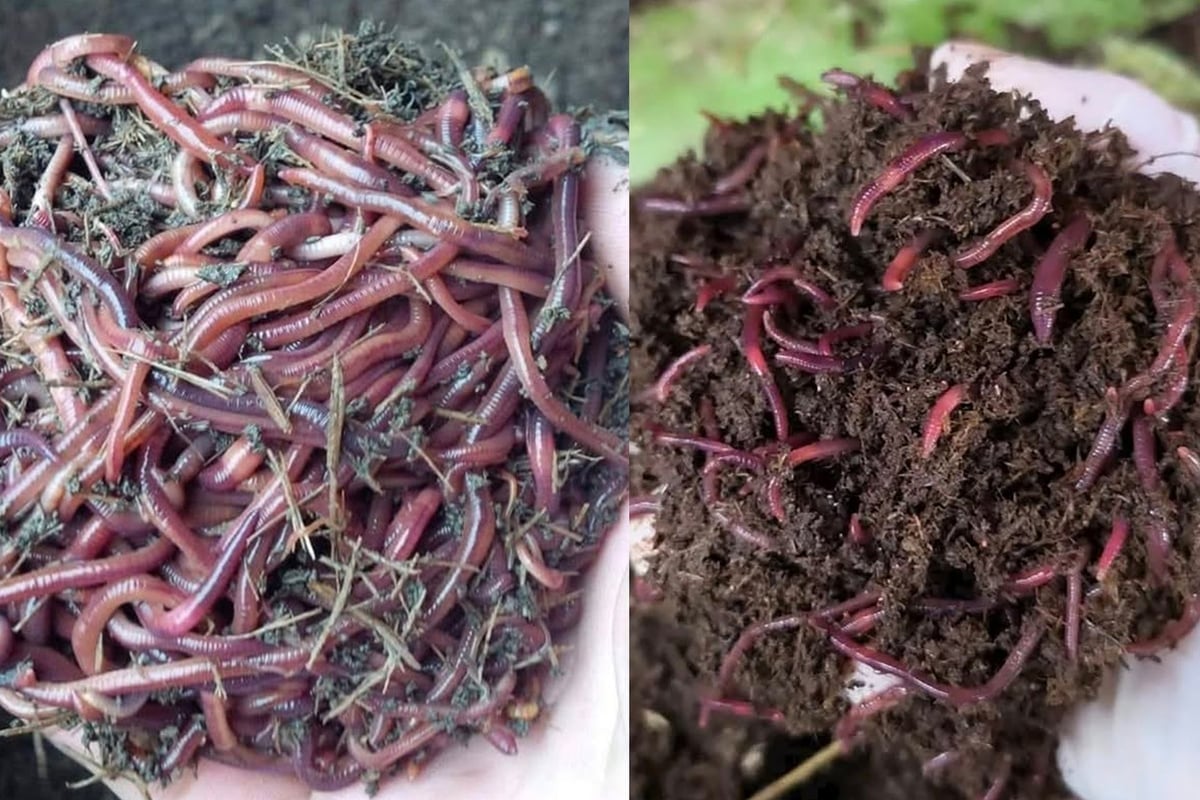
Earthworms help form a circular agricultural model, creating clean agricultural products, increasing value, and protecting the environment. Photo: Nguyen Thuy.
According to him, biotechnology and digital agriculture are opening up great opportunities. While composting used to take 30-45 days, now thanks to probiotics and enzymes, it only takes 7-10 days to produce the finished product.
“I want to spread the circular agriculture model to more farmers so that Vietnam can confidently produce green, clean agricultural products, not inferior to any other country,” said young engineer Le Minh Vuong, adding that the journey to convince farmers to give up the habit of using chemical fertilizers because they are “convenient and dry” and switch to vermicompost, which is cheaper but moist and difficult to preserve, is not without challenges.
“Changing mindsets is the hardest part. But when people see healthy plants, loose soil, and increased productivity, they start to believe,” said Mr. Vuong.
According to engineer Vuong, raising earthworms only requires mastering four basic principles: a suitable, shady, humid environment, avoiding harsh sunlight and flooding; a clean food source from fresh cow and goat manure or composted vegetables; healthy earthworm breeds help create high density parent biomass, strong reproduction; and stable output. Circular agriculture is not only an economic model but also a way of living in harmony with nature.
“With just one box of worm castings, each family can process organic waste right at home, creating natural microbial fertilizer for plants,” Mr. Vuong shared.
Mr. Vuong also researched and perfected many organic products from earthworms such as IMO localized microorganisms (liquid and powder); GE aloe vera, GE banana; organic microbial fertilizer, earthworm liquid, Alonutri Pro biological nutrition for aloe vera plants. In particular, he pioneered the introduction of frozen earthworm products to help preserve valuable biological compounds such as enzymes, minerals, amino acids, meeting the year-round raw material needs of farmers.
To him, earthworms are not only soil-improving organisms but also a bridge between science and farmers, helping them reduce costs, increase productivity, and more importantly, restore soil health.
In the context of Vietnam aiming for ecological agriculture, modern countryside, civilized farmers, vermicompost is one of the highest quality organic microbial fertilizers, meeting the criteria of safety for human health as well as the natural environment.
Circular agriculture helps reuse resources, prolong the life cycle of waste and turn them into valuable products that serve the system in return. Livestock waste is processed into food for earthworms, earthworm manure is returned to fertilize crops, crops provide green food for livestock, creating a cycle of no waste, no chemicals, only the regeneration of nature.
Source: https://nongnghiepmoitruong.vn/trun-que--co-may-sinh-hoc-cua-nong-nghiep-xanh-d782588.html








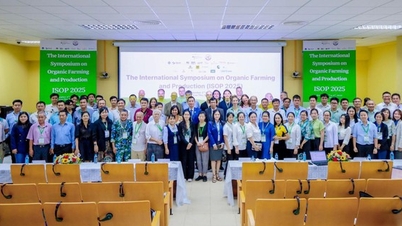

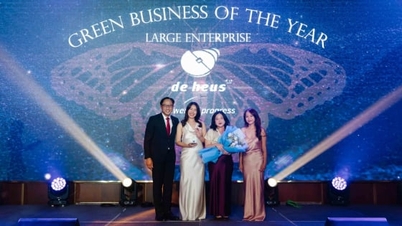

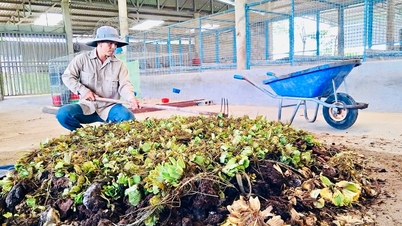





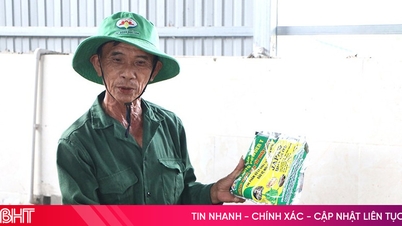
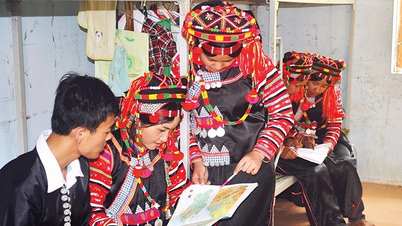

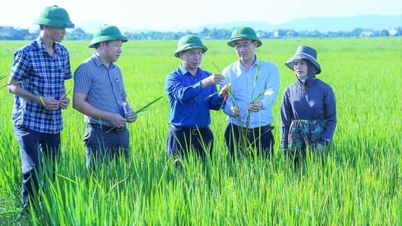


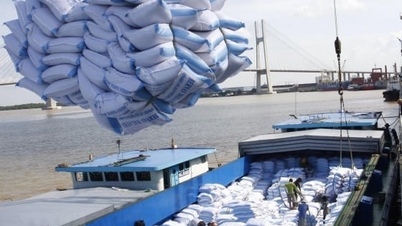





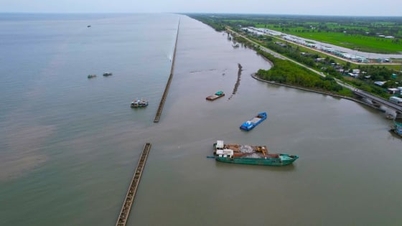
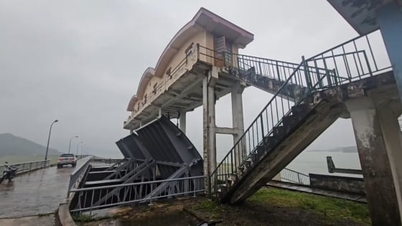
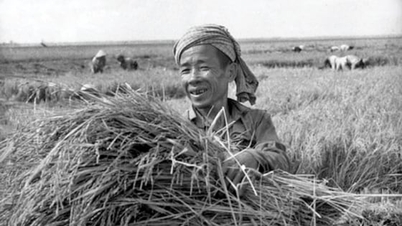
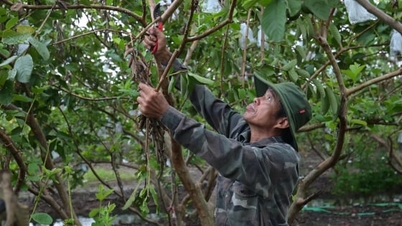
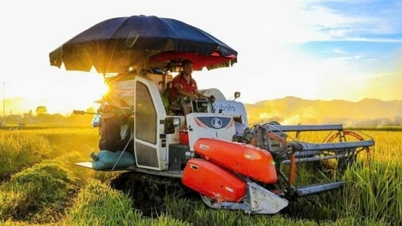
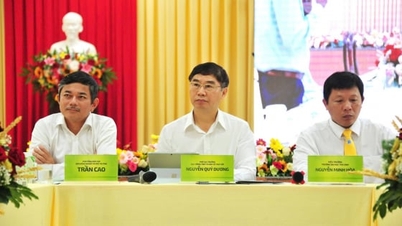

![[Photo] Da Nang: Hundreds of people join hands to clean up a vital tourist route after storm No. 13](https://vphoto.vietnam.vn/thumb/1200x675/vietnam/resource/IMAGE/2025/11/07/1762491638903_image-3-1353-jpg.webp)




































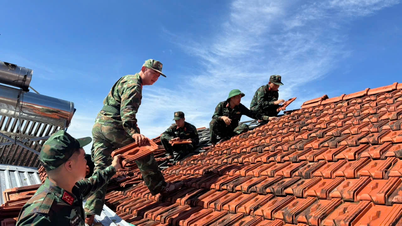




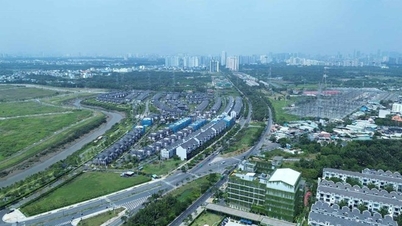













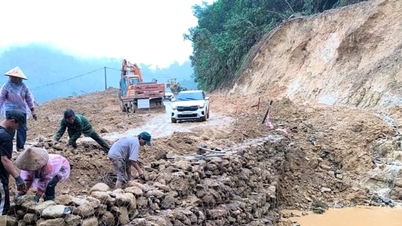



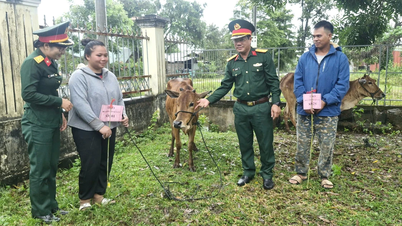
















Comment (0)